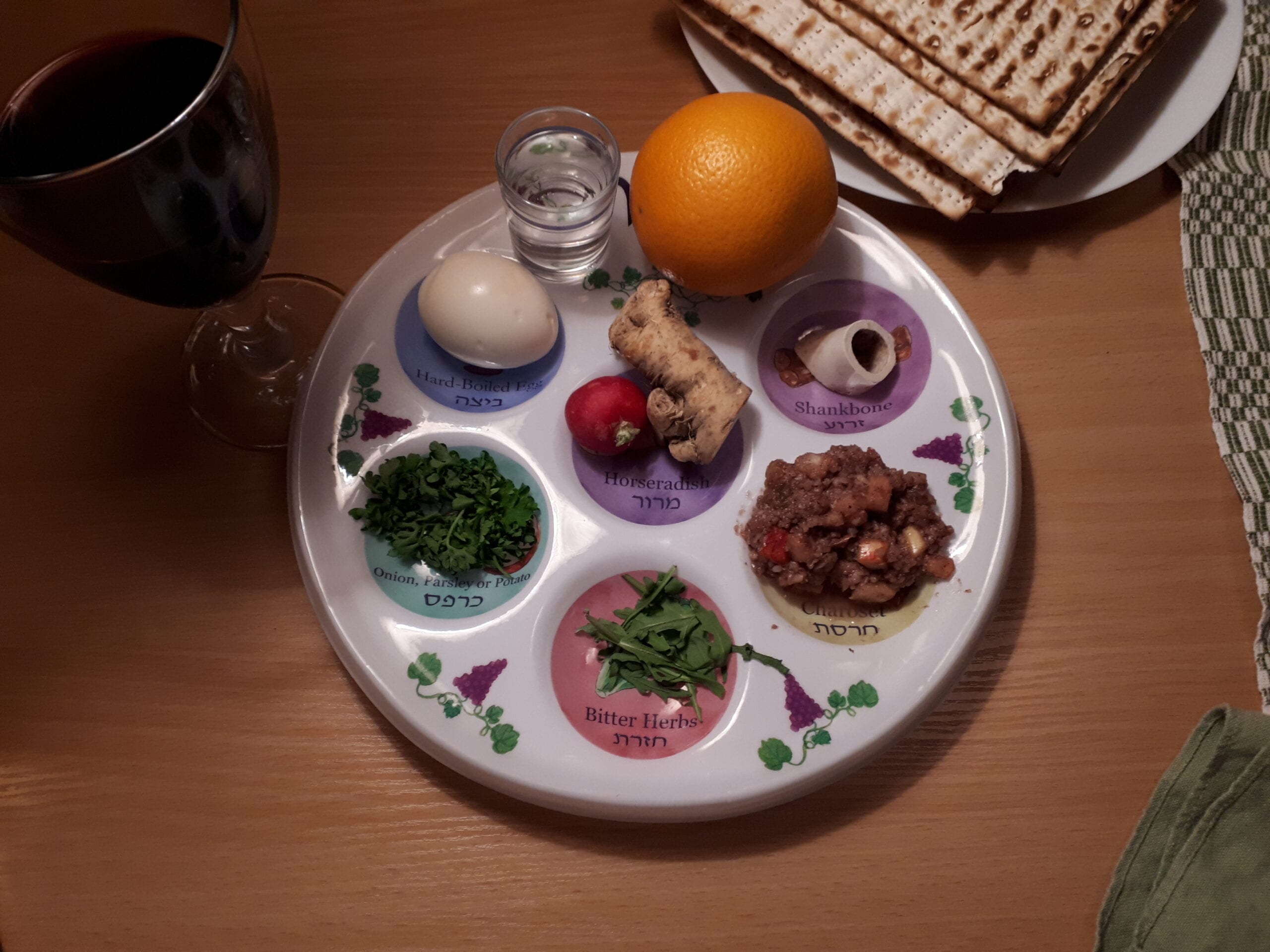For close to 3,000 years, Jews all over the world have celebrated the festival of Passover at the beginning of spring. This is a festival in which we share a ritual meal and the recounting of the Exodus story with family and friends. Our rabbis emphasize that we are to talk and expand upon this story so that in each generation it continues to have meaning and relevance. They stress that we are to not merely tell the history of the Exodus and recite the Haggadah, the narrative of Passover, but also to recount the story of this period as if we ourselves were slaves in ancient Egypt and had “gone forth to freedom.” To use a word that we are all too familiar with today, we are to virtually experience this story as if we are there now, in this present moment.
This Passover, when family and friends could not meet face to face because of COVID-19 at the Seder, the ritual meal of Passover, the celebrations became more memorable and significant than ever before. Through various forms of videoconferencing software such as Zoom, Houseparty and Facetime, people joined from near and far to recognize Passover in circumstances much different from their usual family ritual meal.
Yet, perhaps because we found ourselves in this predicament of a pandemic—a plague if you like—the customs and rituals have had even more significance. And I would suggest that the lessons inherent in this holiday have become even more relevant.
In the past number of years and particularly today, many have added different items of importance to the traditional Seder plate. There’s an orange to represent all those who were once excluded from Jewish practice and society, including LGBTQ2 individuals. Some have added wilted lettuce as a reminder of the struggles low-income families endure to put fresh food on their plates. And others have added coffee beans and chocolate as reminders of forced child labour in all these industries.
As many of us pointed to each of the items on the symbolic Seder plate, and as we reiterated the 10 plagues, we brought a contemporary meaning to each. We discussed modern outbreaks and blights on our earth: Ecological disasters, climate change, imperilled wildlife, pollution and poisoning of our lakes and oceans and, of course today in 2020, a pandemic that threatens our existence.
Today, when no country is immune from this pandemic, no one is a stranger, no one an alien.
Notwithstanding all these innovations to the celebration of Passover, there is a lesson that is most paramount. It’s irrelevant whether the Exodus happened exactly as it was written in the Scriptures, whether the plagues are mythical or factual or whether the wandering in the desert took place or not—though they are wonderful and significant stories to relate. What is most important, however, is the main theme and message of this holiday: The words from the Haggadah, “You shall not oppress the alien for you know the heart of an alien, seeing as you were aliens in the land of Egypt.” These are the words repeated in one form or another 52 times in the Hebrew Bible. Over and over and over again, we are reminded and commanded to “not persecute an alien and not oppress them, because we were aliens in the land of Egypt, and to not oppress the alien since we know the alien’s soul, because we were aliens, strangers in the land of Egypt and to love our neighbour as our self.” Simply put, we are obligated to one another.
Today, when no country is immune from this pandemic, no one is a stranger, no one an alien. We are all united in a plague of unbelievable proportions. Surely now is the time to finally put into practice the essential message of Passover and our Scriptures. Whether we are queer or straight, Hindu or Muslim, Jew or Christian, atheist or agnostic; no matter the colour of our skin, no matter the political party to which we belong, no matter our economic status, we are one. We are responsible for one another. It is time our governments recognize and respond to the needs of the people. It is time that they remember that they work for all of us and not only for the interests of a few. It is time that they recognize that laws must be enacted for all people, to provide proper insurance and benefits to the unemployed and low income so they can afford housing, have food security and not merely scrape by. It is time that they recognize that in all countries of the world, medical care must be a given and no one should ever be refused treatment for lack of insurance or funds. And it is time that they recognize that we are a global community and thus must share all our respective resources and innovations.
In Hebrew, the word for ancient Egypt is mitzrayim, literally: The narrow straits. I would hope that the message of this pandemic Passover is that all humanity will come out of this current mitzrayim transformed, consciously and conscientiously ready to implement social, economic and political change for all humankind. Then the words of Genesis will come to fruition and all the families of earth will be blessed.


 Why you can trust Xtra
Why you can trust Xtra


